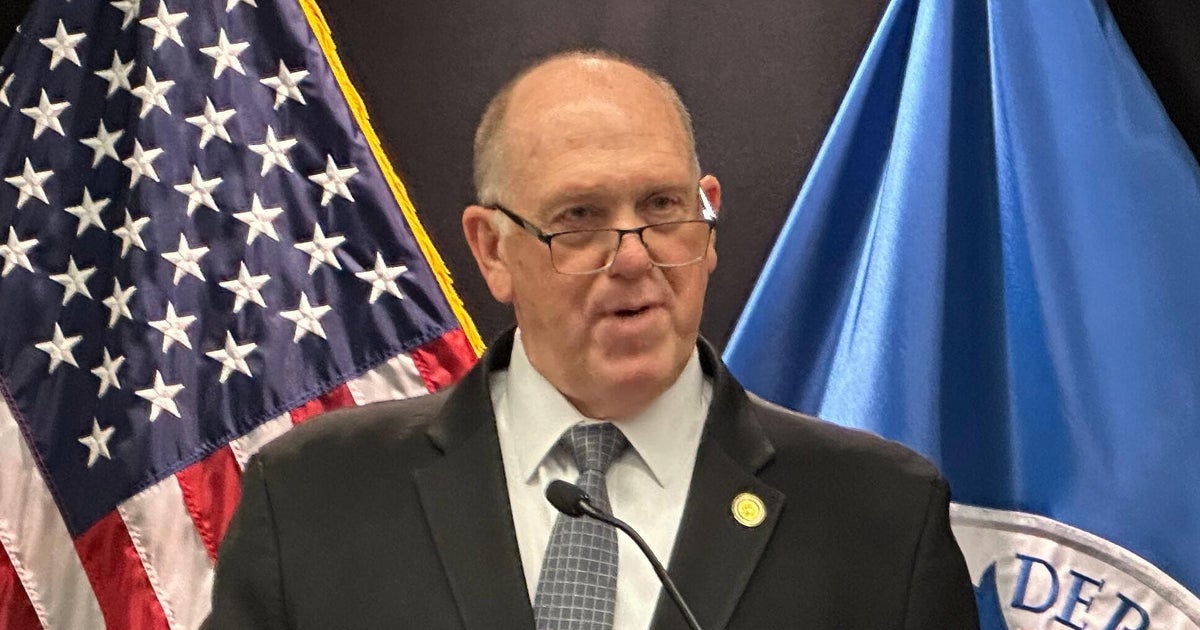Schmidt: Alex Rodriguez Was Cursed The Second He Signed His Mega-Contract
By Mike Schmidt, For The Associated Press
There was a time when Alex Rodriguez was touted as the guy who could relieve us of Barry Bonds as the home run king. He was young, healthy and an MVP contender every year.
If anyone deserved $30 million a year, it was him. That's a stretch — "deserve" $30 million a year. Maybe discovering a cure for cancer, world hunger or global peace, but not playing baseball. Who's worth that number? Surely not a baseball player. Funny, Brad Pitt or Tom Cruise gets the same for a movie, no one raises an eyebrow.
No discussion about Alex Rodriguez can be complete without the subject of money. For an athlete who dedicates his life to his craft, the size of the paycheck is a major factor. No one has ever refused money or given money back. Athletes are entertainers, some ridiculously high-paid entertainers.
In a perfect world, entertainers would not be allowed to make more money than doctors, police officers or anybody whose work made a difference to society. Ours is not a perfect world, so things get out of balance. Something like a young super-athlete, who played baseball for an eccentric owner, in an era when expanded TV, media, Internet and general economic growth seemed evident, was part of a perfect storm.
Alex Rodriguez was cursed. At the time he had no idea, none of us did. That contract changed him and baseball and has been a burden to many. A burden under which he has to play, fans have to watch and baseball has to exist. Alex Rodriguez's career will never be appreciated.
Is the burden of money at the root of all of his problems? Alex Rodriguez, for all intents and purposes, is a good guy. His problem, at times, seems to be the perception that he comes off as insincere, insecure and even a bit fake. What mega-athlete doesn't have that side to their personality? I did. OK, Peyton Manning and Tom Brady, just off the top of my head, but that's about where it ends.
LeBron, Kobe and Tiger, there's a quick three for comparison. But then the anti-A-Rod — Derek Jeter — still at a level where salary could be an issue, is beloved and respected by everyone. CC Sabathia and Mark Teixeira also are on the Yankees and make over $20 million each, and they escape the daily wrath and scrutiny.
Is it money, personality or the combination that makes Alex so polarizing?
To make a point, two personal stories. After his first couple years as a teenage major league shortstop in Seattle, I met him before a golf event in Fort Lauderdale. I had retired several years earlier, he was just beginning his career, and I sensed a great respect as he addressed me as Mr. Schmidt. It made me feel old, but at the same time, he impressed me with his approach.
Fast forward to the All-Star Game at Yankee Stadium in 2008 when he was one homer away from my 548 on the all-time home run chart. We were standing at third base, I was a little uncomfortable not knowing what to say, so I tried to make conversation by mentioning the home run list. He asked me if I was planning on being there to see him match me. It was sort of an aloof response to my question — to ask if I was planning on following him till he tied me was a little presumptuous and a blow to my ego. It came off as the exact opposite of our first meeting. This was 500 home runs and $200 million later in life.
I may be reading too much into these moments, Alex wouldn't even remember them. He was there to play the game, not carry on a conversation about home run records with me. Just the wrong choice of words in a stressful moment, that can happen.
Alex has a very high profile, tries so hard to be normal, and can't pull it off. No one making $30 million a year could. If he were a rock star, who'd care? He plays America's game in front of us for seven months. He can't hide.
The reason he is so polarizing lies right in this story. In him, we all see a guy who hit the sports lottery and we think, if it were us, life would be a bowl of cherries and it would be easy to be everything to everyone. If the tables were turned in that exchange at the All-Star game, I'd have said to him that I'd be honored if he were present when I tied and passed him, and I would send my jet to bring him there. Is that crazy?
So many people say to me that I came along in baseball 20 years too early. They say, 'Imagine what you'd make if you played today.' My answer is simple and has two parts: I'd be Alex Rodriguez, and I'm glad I'm not.
We are alike in that we both were shortstops and moved to third base. We both hit home runs, produced runs, won Gold Gloves, won MVP awards and a World Series championship. Most of my career I was the highest or close to the highest-paid player in baseball. Over the last decade, and forever, it's him. We played under the highest pressure and expectations.
I may be one person who has walked in his shoes. Of course, it was Philadelphia, not New York. It was $2 million, not $30 million. And the world in which he lives is drastically different than mine. Make no mistake, few would qualify to be both highest paid in the game and 0-for-20 in a postseason.
I know what it's like to be right on the ball and miss it, and the few times you connect it's caught. Imagine in the ALCS opener against Detroit, bases loaded, if Alex's rope in the hole in the second inning was six inches to the left. He'd drive in two runs, the pressure is off and maybe none of this happens.
Instead, Jhonny Peralta dives and catches it for the third out, another failure in the clutch. In the 1983 World Series, I finished 1-for-20. But in my first two at-bats, I lined out to center field with men on base. Those balls find the gap and I'd go as far to say the Series outcome against Baltimore would have been different.
The postseason can be cruel, especially cruel to those hitters who are expected to produce and lead their teams. In baseball, players are supposed to be judged over an extended period, not a two-week postseason. Hitting comes and goes and never says goodbye. This time of year, the big, high-paid boys are supposed to hit, but most don't. Check it, there are more hitting stars who fail in postseason than succeed. Look at Robinson Cano and Curtis Granderson — even worse than Alex, but who's making the headlines?
Imagine if he had never signed that contract, made a normal amount and never had a brush with performance-enhancing drugs. Imagine if there were no Internet, no Twitter or Facebook, only a couple newspapers and radio shows, and limited television exposure. Would he be today's Mickey Mantle?
But that's the reality, and because of it he has his $200 million and the pressure that comes with it. He signed on for this and now he faces challenges few if any ever have. I was never benched, never removed for a pinch-hitter. The Phillies believed I was always one swing from changing a game and a series. Apparently, Joe Girardi didn't feel the same about Alex Rodriguez.
Alex seems to my eye to still be a fundamentally sound and potentially very productive hitter. Staying healthy at 37 is the issue. Age is a funny thing. I seemed to hit a wall in my late 30s. I can't explain it other than to say fastballs I used to hit a long way ended up on the warning track, nagging injuries increased, I didn't get to groundballs I used to eat up.
And as this happened, I began to doubt my ability. I had an excuse: I was old, so I retired. It happens to all of us. But in Alex's case when it does — if it isn't happening now — it won't be that easy. He will be making $30 million a year, guaranteed! For that kind of money, you aren't allowed to get old.
What do you make of the Hall of Famer's point of view? Sound off with your thoughts and comments below...
(Copyright 2012 by The Associated Press. All Rights Reserved.)







